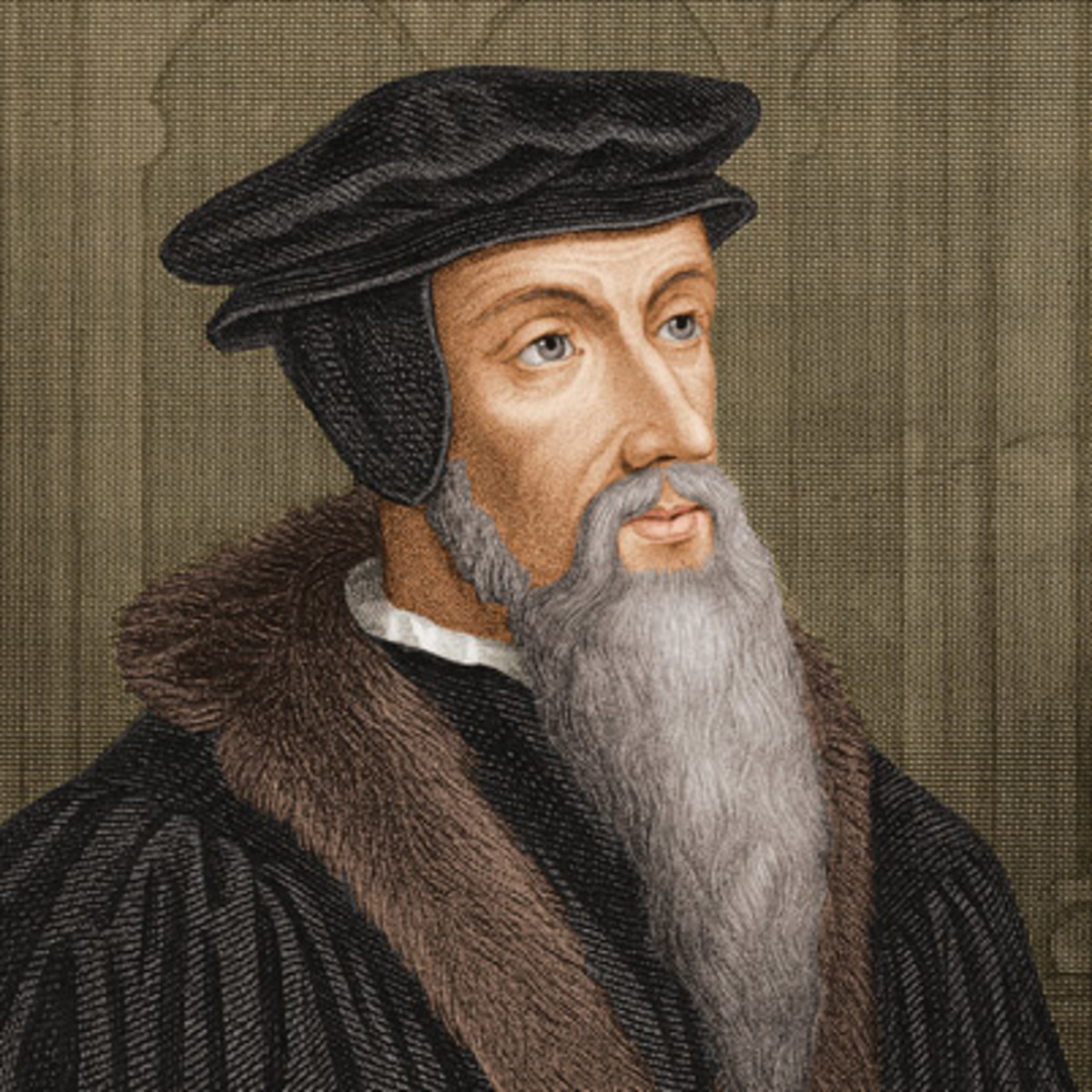Thanks, John Calvin!
November 22, 2017

IF ANY ONE man can be blamed for the gorge-and-then-shop spirit of Thanksgiving weekend in America it is John Calvin, the 16th-century Protestant revolutionary.
While it is impossible to imagine Calvin slamming a fellow Black Friday shopper for the last flat-screen TV at Walmart, his theological principles have been so influential in America they can arguably said to have formed it. They inescapably lead to the conviction that contemplation and good works do not constitute the Christian life as much as ceaseless industry. Calvin encouraged a life devoid of elevating ritual and the American who turns even his leisure time into a form of competitive work. Under Calvinism, prosperity and success became the signs of salvation.
George O’Brien in An Essay on the Economic Effects of the Protestant Reformation sums up the spirit of Calvinism:
The earliest Calvinists did not believe that there could be any outward distinction between the chosen and the rejected, but, as the popular creed developed, it came to be believed that a man’s spiritual regeneration could be testified to by the manner of his life. It was taught that incessant activity in one’s vocation dispelled religious doubt, and assured one of the possession of the state of grace. 195 The new Protestant conception of the state of grace was to belong to the elect, and the only way in which this association could be proved was by the systematic mode of conducting one’s life, and by the avoidance of all indolence and inactivity. 196 The Catholic Church taught the possibility of the gradual accumulation of grace by individual good works, but the Calvinist conception of the state of grace demanded a persevering, systematic course of conduct, by which a man’s spiritual condition could be recognized by the whole world. The judge of one’s spiritual health was not, as in Catholicism, a confessor, but one’s own neighbours. 197 It is easy to understand how this conception would lead to a new kind of spiritual aristocracy, an aristocracy of the diligent, the active, and the zealous – the “saints” – instead of the old aristocracy of the monks. It is also easy to see how it might lead to a close connection between a man’s religious reputation and his worldly success. To be excluded from the category of the elect in a community where such ideas prevailed would be a stigma to be avoided at all costs.
O’Brien, George. An Essay on the Economic Effects of the Reformation (Kindle Locations 1403-1409). Ihs Press. Kindle Edition.
John Calvin would surely never have indulged in Black Friday sales, but he helped make a world where what you have matters most and where no one truly takes a day off.
— Comments —
Lydia Sherman writes:
I agree about Calvin. His teachings made it hard to believe in and love God. Instead of a loving interaction between man and his Maker, there is a dull, tedious, punishing, grueling existence. No one can be very happy and they are always nervous about their approval rating.

